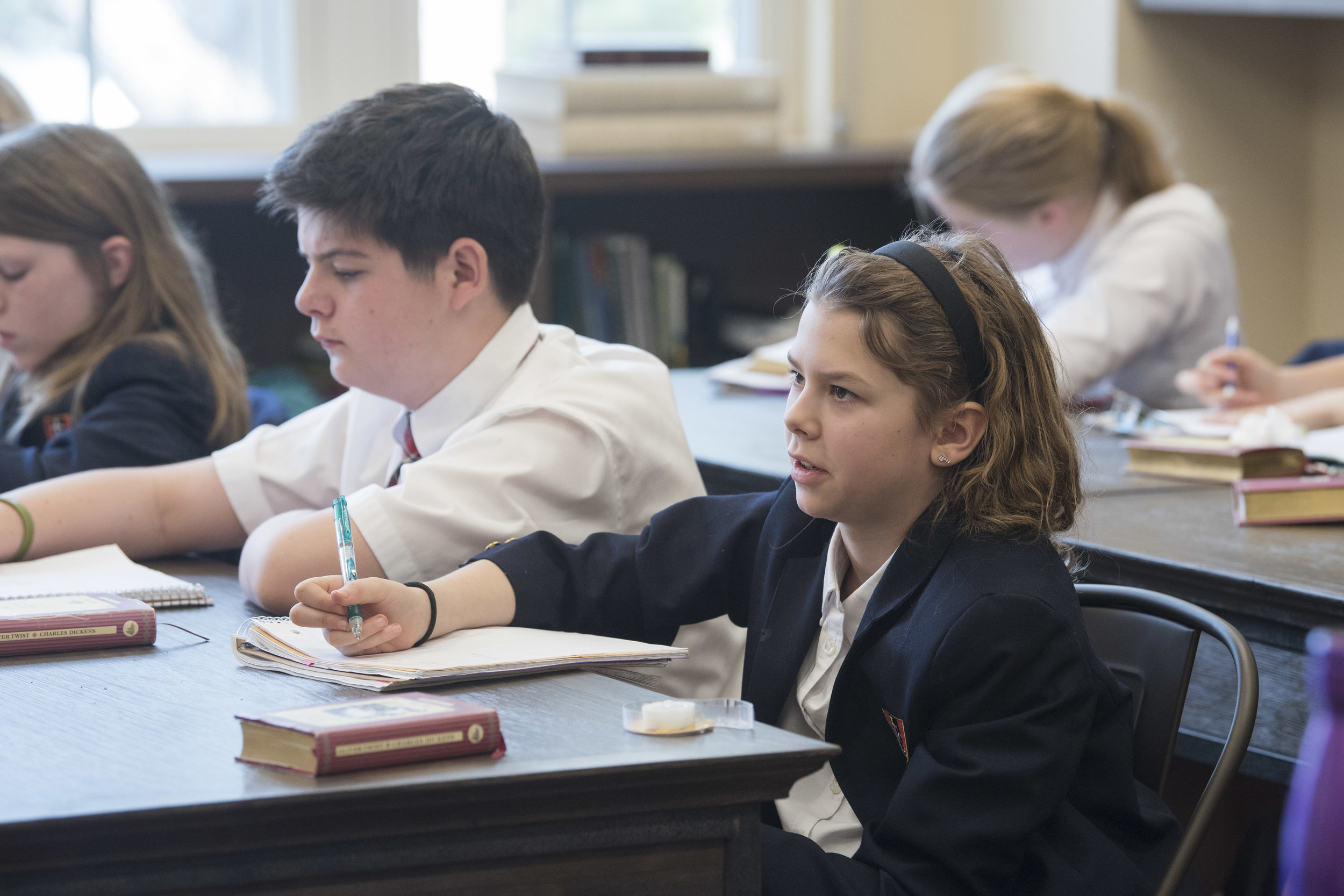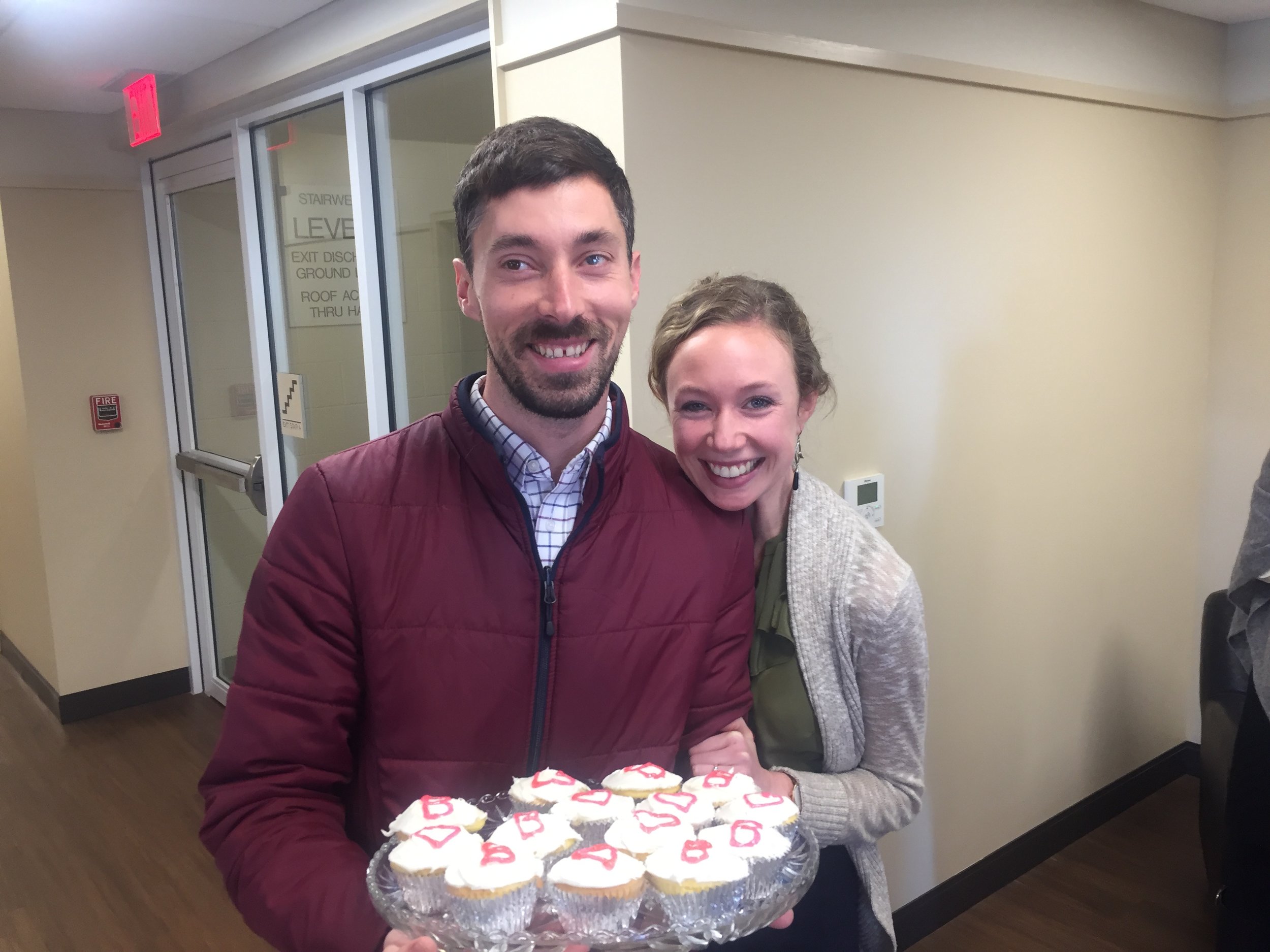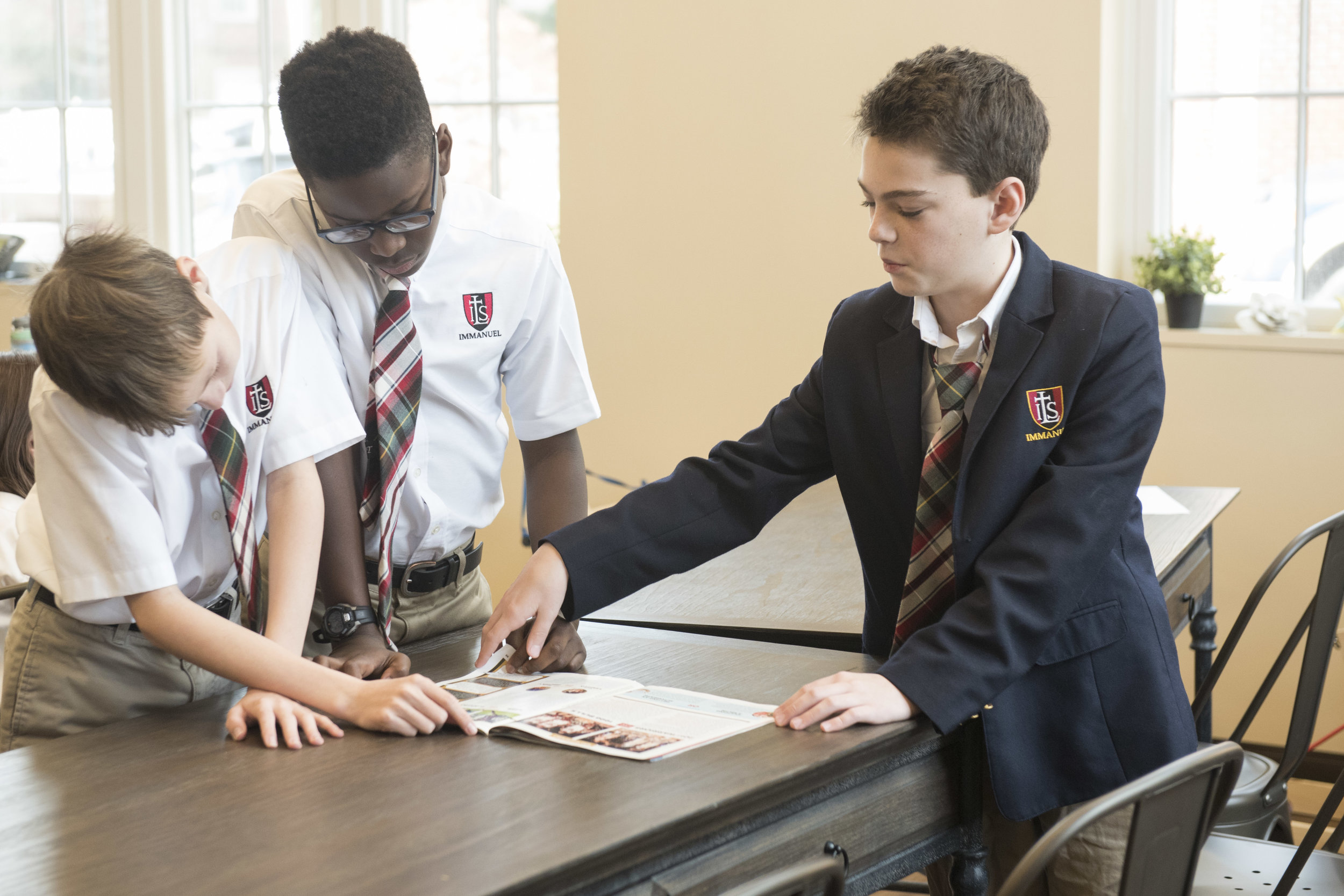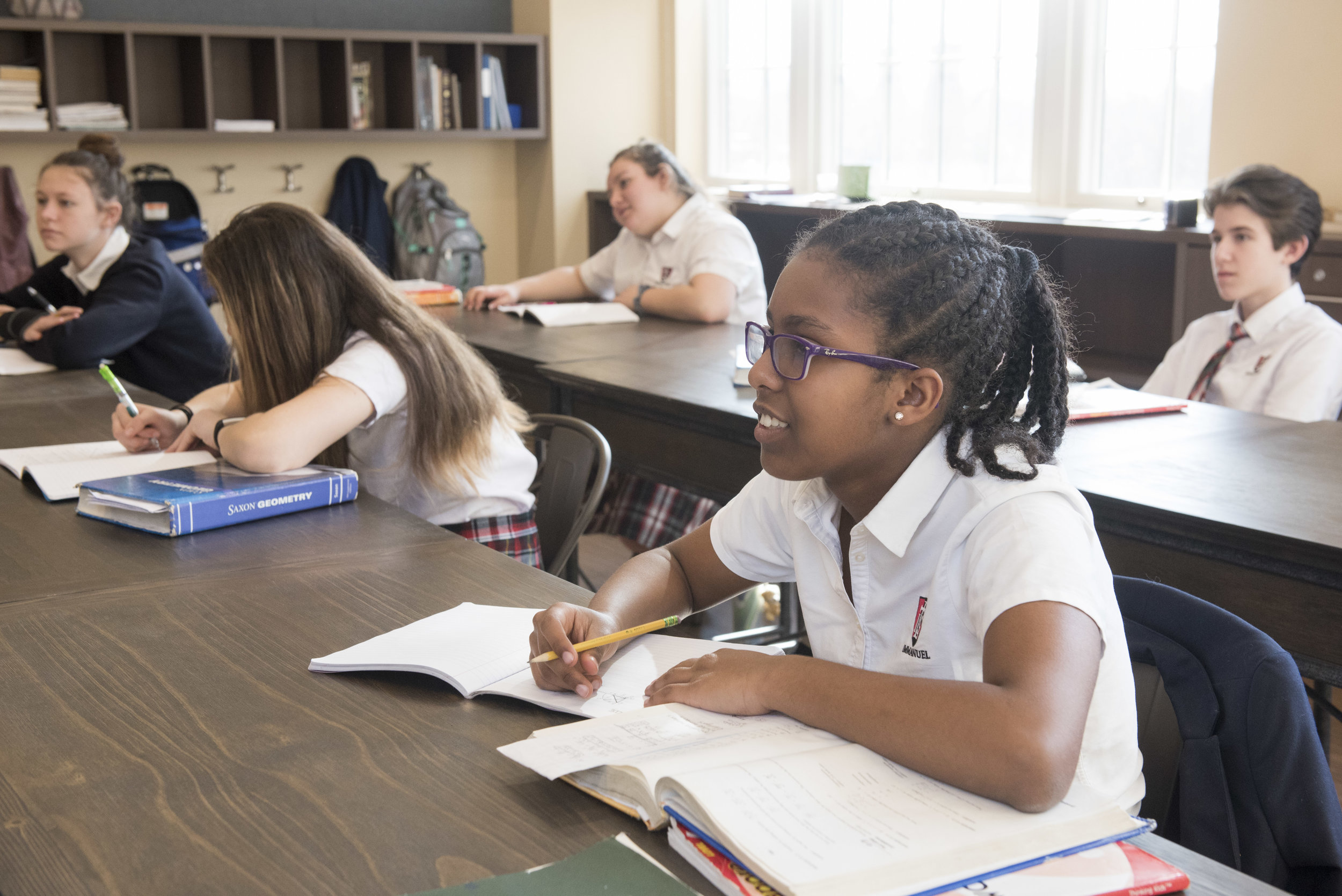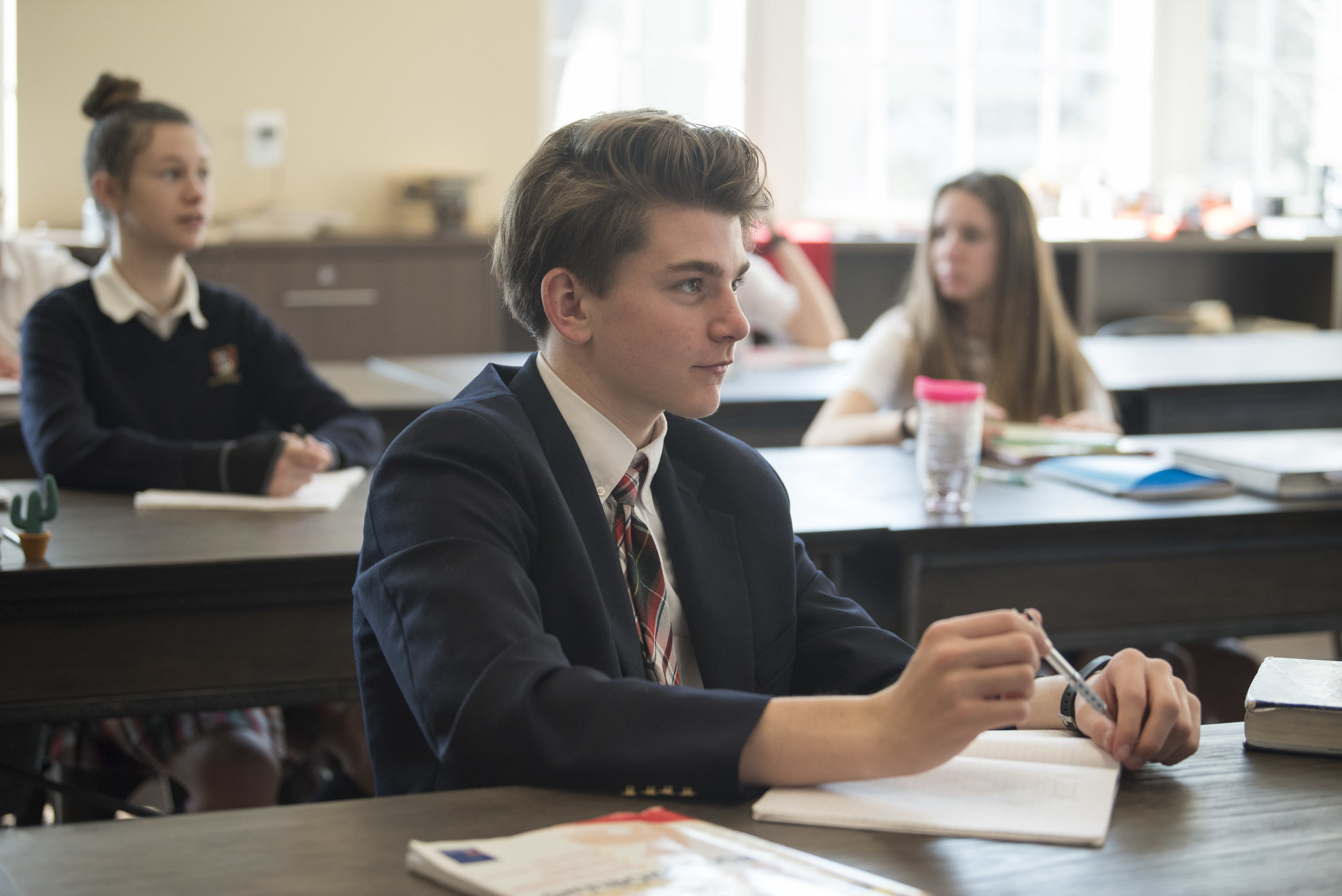Interested in experiencing a classical, Christian education at Immanuel? We warmly invite you to attend an Admissions Open House or join us for a Walk-in-Wednesday tour to see us in action. You may also visit us each week here on the ILS Blog as we offer a virtual sneak peek into our classrooms from each of our teachers. Every Wednesday, we’re sharing a glimpse of what a visitor might observe when they walk into our classrooms at any given moment.
This week, Mr. Shawn Barnett, our Upper School Latin teacher, continues our “Walk-in-Wednesday” series with a peek into his Latin II class and the delightful scenes you might observe if you were to stop in to visit one of his classes this week!
We hope that you are encouraged by these snap-shots to join us in person to see us in action. Stepping through our red doors, you will be welcomed by the joyful sounds of learning, from poems and jingles in the lower grades, to great discussions and debates in our older grades. Singing and music ring out from the music room, and the wonderful sights and sounds of students and teachers engaged in learning can be witnessed throughout our campus.
Upon walking into an Upper School Latin II class, you might hear the warm and rich sound of twenty or more students reciting the Pater Noster or the Credo. After praying the prayer the Lord has taught us and reciting the ancient baptismal confession of the Church, students respond to the imperative “Sedēte, discipulī!” by quickly taking seats. A number of hands would fly into the air as students seek to clarify any complex constructions or grammatical minutia from the previous night’s assignment. Often in response to a few questions, students are able to answer their own queries: “Oh, that’s right totīus is an irregular adjective. It’s in the genetive and not the nominative. That makes more sense!” Usually, other students share in the “aha!”-moment and you can almost see the light bulbs going of in their heads as they grasp the concept.
After a few minutes of grammar review in which students busily copy down paradigms into their notes and ask further questions to clarify the difference between, say, a cardinal number and an ordinal number, students close their notebooks and flip their textbooks open to their vocabulary as they silently pour over the vocabulary to prepare for a rapid-fire vocabulary bee. Instructed to close their books, the bee commences. At first almost no one gets out. They’ve done this before. But then one head drops to the desk after getting out on the word aēneus, -a, -um. More heads drop down until one student hesitantly responds, “Is it...bronze?” Bronze it is. The students often surprise themselves with how quickly they are able to memorize their vocabulary when they focus intensively.
Students quickly transition to the next task by turning down the blinds to better see the projector and getting out their notebooks to work through sight reading Latin sentences. The students silently and busily translate a series of sentences from the projector. After a few minutes of independent work, students are raising their hands to translate and respond immediately when called upon at random to parse verbs, describe the function of a noun, explain how to negate the imperative or what explain why a third conjugation verb is in the future rather than the present tense.
Finally, students break into small groups translating an adapted tale from Virgil’s Aeneid. Passing by the students you might hear one say, “ I don’t understand why this is in the dative case.” To which her partner might respond, “That’s because it’s in apposition to the reginā.” While sharping their translation skills against one another, the students learn of the legend of the founding of Carthage.
To the outsider who knows little of Latin grammar, it might seem a bit dizzying how the students so adeptly refer to modifiers and verb mood. Indeed, the uninitiated might make neither heads nor tails of so much technical terminology, but would certainly be left with the impression that these students had become intensely focused on details and persevered toward mastering the nuances of meaning that these small details communicated. Such attention to detail! Who knows? These could be the constitutional law scholars of tomorrow.

